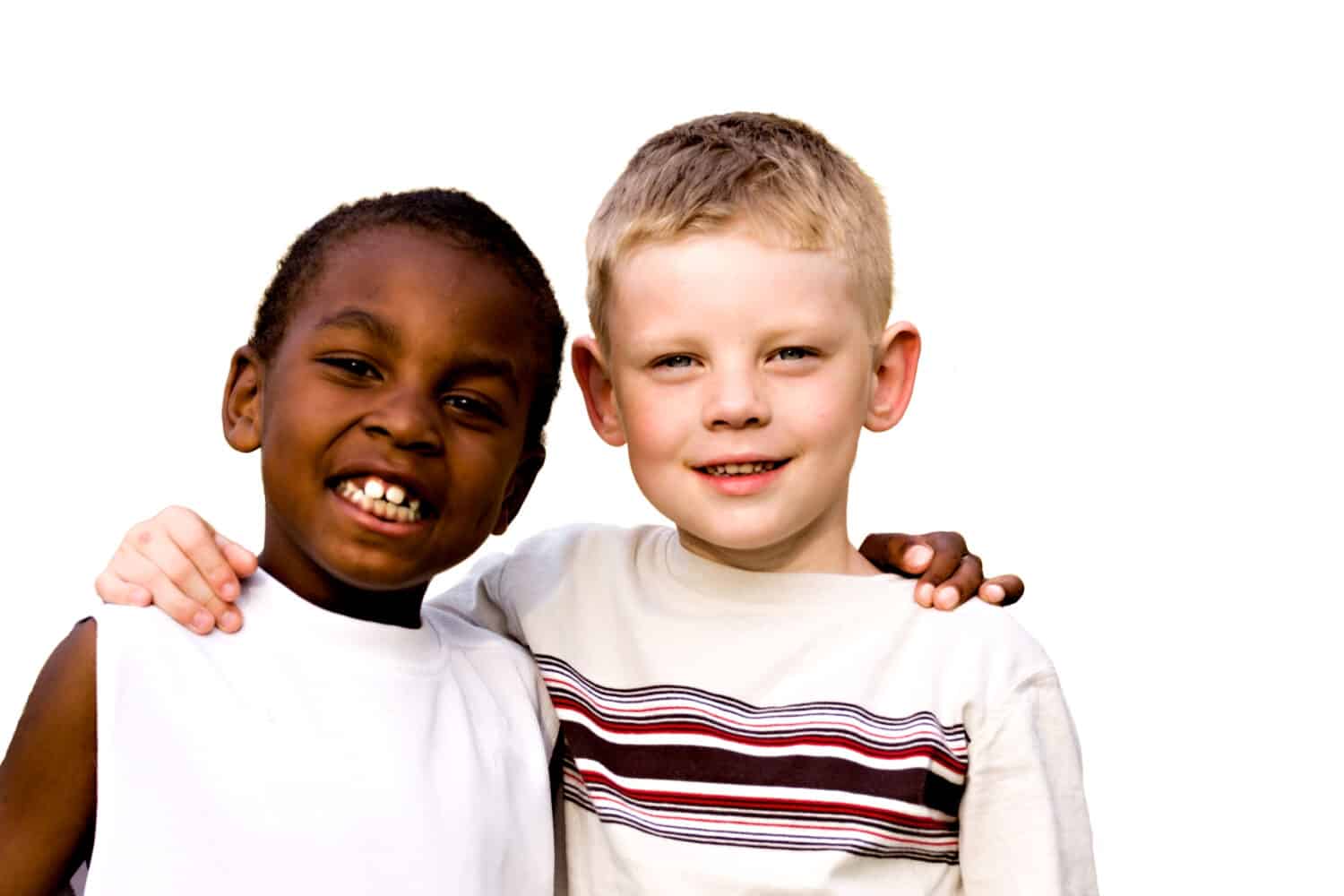In a time when kids are encouraged to express themselves and develop at their own pace, certain conventions like good manners tend to fall by the wayside. But teaching manners to children helps with their personal and social growth. They'll develop empathy and respect for others, which is essential for building positive relationships. While you want your child to grow up to be kind and respectful individuals, you also don't want them to be disrespected for not standing up for themselves. So where's the line? Read on to learn more about good manners for kids.

©John Steel/Shutterstock.com
Key Points of Kids Learning Manners
- While non-traditional parenting has become common, there are still boundaries children shouldn't cross.
- Teaching children good manners can positively impact their lives.
- Have children avoid name-calling and interrupting others.
- Children should also stand up for themselves, respectfully.
- Being friendly to strangers goes a long way.
Allow Your Child to Discover the World — Politely
What, exactly, is it that drives a child to be rude to someone else? How much he can get away with, perhaps? How evil he has to be before receiving instruction from his parents?
In many ways, some parenting could be called ‘non-traditional.' You may not be a stickler for language or eating peas before ice cream, nor do you carefully map out Johnny's television time by the minute. However, should the little guy snatch the remote control away and change the channel or take his father's ice cream without permission or curse with abandon at the dog, then his whole world immediately comes to a grinding halt as he gets a lesson on good manners from his mother.
Exploration is one thing. Bucking convention in favor of taking risks and pushing limits is commendable. But doing so in such a way as it hurts someone else? Not acceptable. For example, there are a few things in particular that are non-negotiable tips for raising polite children.
• No name-calling. If something bothers you, learn to identify what it is and tell the person. Name-calling makes the situation worse.
• No cutting in line, snatching things from people, or interrupting loudly when others are speaking. Patience is a virtue. Wait your turn.
• Be friendly to strangers. Things like making eye contact, saying ‘hello' and ‘goodbye' and ‘it was nice meeting you' can take you far in this world.
• In the same way, ‘please,' ‘thank you,' ‘you're welcome,' ‘yes, ma'am,' and ‘yes, sir' also increase your chances of success in any situation.
• Learn conflict resolution. If you are having an issue with a friend or acquaintance, learn how to defuse the situation appropriately.
• Cleaning up after oneself and even doing a chore that obviously needs to be done without being asked is more than just good manners. It develops a sense of responsibility and awareness.
• For little boys, treating women with respect is essential. This means opening doors and pulling out chairs, listening when they speak, and respecting their opinions. For everyone, this applies to anyone older than you are. Quite simply, it's good manners.
• Winning and losing graciously. This falls more under the category of skills than manners, but it's crucial.
• Open-mindedness and learning empathy are other skills that are less mannerly, but absolutely imperative. Learning to accept people despite differences in beliefs, skin color, ethnicity, culture, manner, ability, etc. could be considered good manners by some standards and a philosophical way of life by others.
• Pointing fingers and whispering? Well, you're not making any friends that way, that's for sure.
Teaching Children to Stand Up For Themselves
On the other hand, should someone try to take advantage of his kindness or generosity, Johnny knows that he doesn't have to continue being polite as if he were programmed to do so. He is a person and he has feelings. It's okay to express them. Stand up for yourself when confronted. That can be just as important as learning good manners.
What it ultimately comes down to is respect. Johnny doesn't have to stand there and let anyone talk down to him or treat him badly, no matter how old that person is. He knows never to cut someone down, never to start a fight, and to always walk away from negative situations if possible. He is taught to give respect to everyone automatically but also to stand up for himself when someone hurts him. Manners are a matter of boundaries and balance, meant to protect him and help him go as far as he can in the world and never stop exploring.